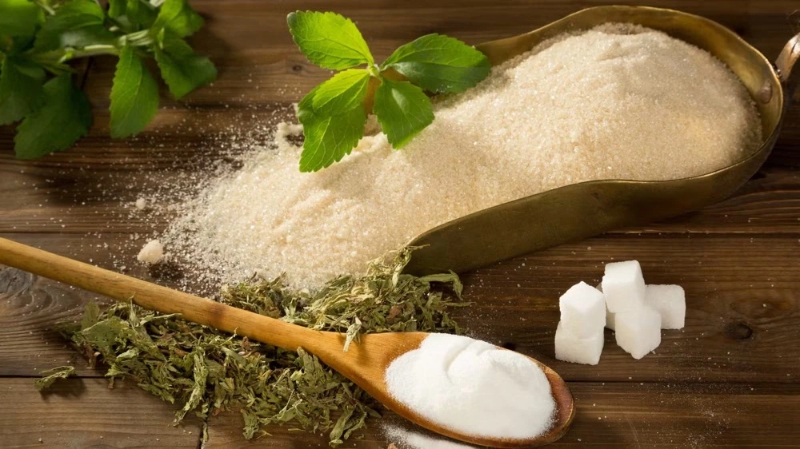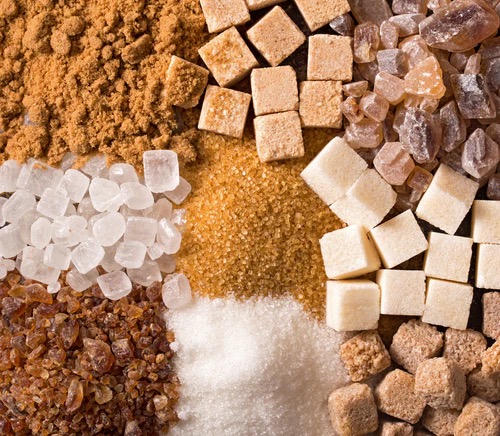Views: 222 Author: Sara Publish Time: 2025-11-17 Origin: Site








Content Menu
● The core question and context
● Regulatory and safety landscape
● Health perspectives and consumer trends
● Practical considerations for beverage formulation
● Market implications for Chinese manufacturers
● Case study considerations for Diet Coke-like beverages
● Implications for product developers and OEM/ODM partners
● FAQ
>> 1. What artificial Sweetener is used in Diet Coke?
>> 2. Is aspartame safe to consume?
>> 3. Are there natural Sweeteners in Diet Coke?
>> 4. Does Diet Coke contain sugar?
>> 5. How should manufacturers choose Sweeteners for new beverages?
Our factory specializes in natural sweeteners, functional polyols, and dietary fibers for the food, beverage, and healthcare industries. We provide blended-sweetener development, tablet production, and OEM/ODM services for overseas manufacturers. This article examines the sweetenerscape behind Diet Coke, the role of sweeteners in modern beverages, and the broader implications for product developers seeking healthy, compliant solutions. The goal is to offer a clear, practical overview for international manufacturers exploring sweetener options, with a focus on safety, regulatory status, taste profiles, and ongoing research. Throughout, the term Sweetener is used in reference to both artificial and natural compounds that deliver sweetness with varying caloric contributions and metabolic effects.

Diet Coke relies predominantly on an artificial Sweetener to deliver zero-calorie sweetness comparable to sugar. Historically, aspartame has been the backbone of Diet Coke's formulation in many markets, enabling the familiar, crisp profile without caloric load. In some regions or product variants, manufacturers may explore alternative or blended sweeteners, including sucralose, Ace-K (acetoacetamide potassium), or other sweetness-enhancing systems to tailor taste, mouthfeel, and aftertaste. This diversity reflects both consumer preferences and regulatory landscapes across different jurisdictions. Understanding these dynamics is essential for product developers seeking to design compliant, palatable beverages that meet local labeling and health standards.
A wide range of substances functions as a Sweetener in beverages, spanning artificial, natural, and hybrid categories. The core distinction lies in sweetness intensity, caloric contribution, and metabolic impact.
- Artificial Sweeteners: Compounds such as aspartame, sucralose, and Ace-K are hundreds to thousands of times sweeter than sucrose, allowing small amounts to achieve sweet tastes while minimizing calories. The choice of blend can shape flavor attributes, aftertaste, and texture.
- Natural Sweeteners: Stevia and other plant-derived sweeteners offer different sensory profiles and consumer appeal, often marketed as "natural." They may be used alone or in blends with artificial sweeteners to balance sweetness and bitterness.
- Polyols and Blends: Functional polyols (e.g., xylitol, erythritol) can contribute sweetness with lower caloric content and can influence mouthfeel, astringency, and glycemic response. They are sometimes used in blends to modify texture and aftertaste.
Taste perception is influenced by the specific sweetener combination, pH, carbonation level, caffeine content, and any other additives. Formulation often aims to achieve a sweetness profile that matches sugar as closely as possible while controlling aftertaste and mouthfeel.
Global regulators assess Sweeteners for safety at typical consumption levels. The Acceptable Daily Intake (ADI) concept provides a conservative threshold to protect consumers over a lifetime of exposure.
- Aspartame: Widely approved in many countries, with established ADIs. Debates and reviews continue, especially in light of new epidemiological data and risk assessments from health agencies. Some organizations monitor potential carcinogenic signals, while others emphasize extensive safety reviews supporting use at approved levels.
- Sucralose: Generally recognized as safe by major authorities when used within approved limits, with ongoing research into long-term effects and cognitive/metabolic considerations in some studies.
- Ace-K and other blends: Regulatory status varies by jurisdiction but is commonly approved for use in many beverages, often in combination with other Sweeteners to optimize flavor and reduce aftertaste.
For product developers, compliance means aligning with local food-additive regulations, labeling requirements, and any region-specific limits on individual Sweeteners or blends. Transparency in labeling (including sweetener identity and quantity per serving) supports consumer trust and regulatory adherence.
There is ongoing scientific debate about the long-term health effects of low- or no-calorie Sweeteners. Some studies suggest associations with metabolic changes, cognitive outcomes, or cancer risk signals, while others emphasize safety within established intake guidelines. It is important to interpret such findings in the context of study design, exposure levels, and population differences. For manufacturers, this translates into a market environment where:
- Consumer demand for reduced-sugar options remains strong, driving continued innovation in Sweeteners and taste-masking technologies.
- Regulatory scrutiny and scientific discourse encourage ongoing post-market surveillance and risk-benefit analyses.
- Branding strategies increasingly leverage "lower sugar" positioning alongside transparent communication about ingredients and health considerations.
When choosing Sweeteners for a diet or low-calorie beverage, product developers should consider:
- Taste and mouthfeel: Balancing sweetness intensity, aftertaste, and syrupy mouthfeel often requires blends. For example, aspartame is very sweet but can have a distinct aftertaste; blending with Ace-K or sucralose can mitigate this.
- Stability and shelf life: Some Sweeteners are more stable under heat, light, and carbonation conditions. The formulation must protect sweetness over the product's shelf life.
- Ingredient interactions: Acids, caffeine, carbonation, and colorings can influence perceived sweetness. Formulators adjust ratios to maintain consistent flavor across batches.
- Labeling and consumer perception: Some markets restrict or discourage certain Sweeteners or encourage "natural" claims. Clear, compliant labeling supports brand trust.
- Supply chain and cost: Availability and price volatility of Sweeteners affect formulation decisions and pricing strategies.

As a factory with expertise in natural Sweeteners, functional polyols, and dietary fibers, you are well-positioned to support overseas manufacturers seeking customized Sweetener blends and OEM/ODM capabilities. Consider the following opportunities:
- Blended Sweetener development: Create tailored blends combining natural and artificial Sweeteners to achieve target sweetness, mouthfeel, and labeling compliance for various markets.
- Tablet and product formats: Develop compressed tablet forms or stick packs where precise dosing helps manage calorie targets and regulatory compliance for dietary supplements or nutraceuticals.
- Regional customization: Tailor formulations to meet distinct regulatory regimes, flavor preferences, and consumer expectations across Europe, North America, and Asia-Pacific markets.
- Sustainability and clean-label trends: Explore natural flavor masking agents, plant-based Sweeteners, and reduced-intensity sweeteners to align with clean-label demands and consumer health priorities.
For a Diet Coke-style product, a development program might address:
- Sweetener strategies: Primary Sweetener with a carefully balanced secondary Sweetener to modulate aftertaste and achieve a sugar-like profile.
- Regulatory mapping: Ensure all Sweeteners comply with target market regulations, including labeling disclosures and permissible usage levels.
- Sensory testing: Conduct rigorous taste panels across multiple markets to refine flavor, sweetness, and aftertaste profiles.
- Shelf-stability tests: Assess sweetness retention under varying temperatures and storage conditions to ensure consistent consumer experience.
- Health and communications: Develop transparent messaging about sugar-free and calorie-free benefits, while acknowledging ongoing scientific discussions about long-term safety.
Your factory's strengths in natural Sweeteners, functional polyols, and dietary fibers position you as a strategic partner for beverage producers seeking custom Sweetener solutions. Key value propositions include:
- Customization: Tailored Sweetener blends that meet flavor goals, caloric targets, and regulatory compliance across global markets.
- Quality and safety: Rigorous quality control, safety testing, and documentation to support regulatory submissions, audits, and supply-chain reliability.
- Innovation: Access to novel Sweeteners and processing technologies that enable reduced sugar formulations without sacrificing taste or mouthfeel.
- End-to-end support: From formulation and scale-up to tablet production and OEM/ODM manufacturing capabilities, enabling smooth product development cycles.
Sweeteners play a pivotal role in shaping the taste, health perception, and regulatory compliance of diet beverages. Diet Coke's reliance on aspartame illustrates how a carefully chosen Sweetener can deliver a sugar-free experience with consistent quality. Nevertheless, the broader scientific discourse continues to explore long-term health implications, guiding ongoing refinement of formulation strategies and consumer communications. For manufacturers, a proactive, science-informed approach—grounded in regulatory knowledge, sensory science, and market dynamics—allows the development of compelling, compliant, and nutritious beverage options that align with global consumer expectations and health priorities.

Diet Coke primarily uses aspartame as its main Sweetener, with some variants employing blends that may include sucralose or other sweeteners as needed for regional taste profiles.
Regulatory agencies generally deem aspartame safe within established daily intake limits, though ongoing research and regulatory reviews continue to evaluate potential health signals. Consumers with phenylketonuria (PKU) should avoid aspartame due to phenylalanine content.
Traditional Diet Coke formulations rely on artificial Sweeteners. Some products in the broader market explore natural Sweeteners like stevia, but Diet Coke itself is not typically labeled as containing natural Sweeteners.
No. Diet Coke is formulated to be sugar-free, using low- or zero-calorie Sweeteners to achieve the perceived sweetness.
Consider taste targets (sweetness intensity, aftertaste, mouthfeel), regulatory constraints, labeling requirements, stability under carbonation, supply chain reliability, and overall consumer health messaging. Use structured sensory testing and regulatory mapping to guide Blended Sweetener decisions that balance taste, safety, and market acceptance.
[1](https://pmc.ncbi.nlm.nih.gov/articles/PMC12286081/)
[2](https://med.umn.edu/news/university-minnesota-led-study-links-long-term-artificial-sweetener-intake-increased-body-fat-adipose-tissue-volume)
[3](https://www.fda.gov/food/food-additives-petitions/aspartame-and-other-sweeteners-food)
[4](https://www.cnn.com/2025/09/03/health/artificial-sweetener-cognition-wellness)
[5](https://www.who.int/news/item/14-07-2023-aspartame-hazard-and-risk-assessment-results-released)
[6](https://pmc.ncbi.nlm.nih.gov/articles/PMC8227014/)
[7](https://sph.umich.edu/news/2023posts/aspartame-and-cancer-a-toxicologists-take.html)
[8](https://www.neurology.org/doi/10.1212/WNL.0000000000214023)
[9](https://www.sciencedirect.com/science/article/pii/S2161831325000857)
[10](https://www.cancer.org/cancer/risk-prevention/chemicals/aspartame.html)
